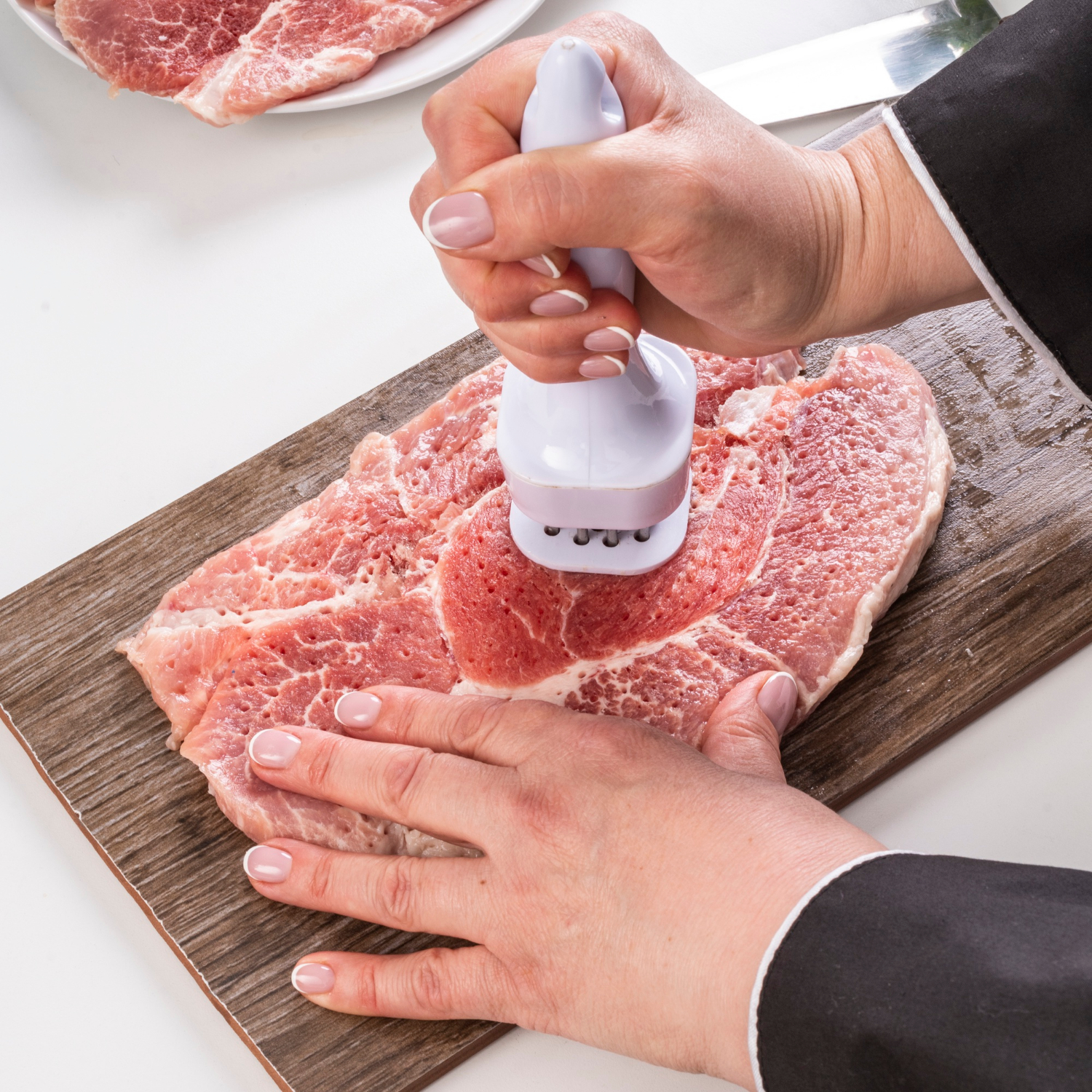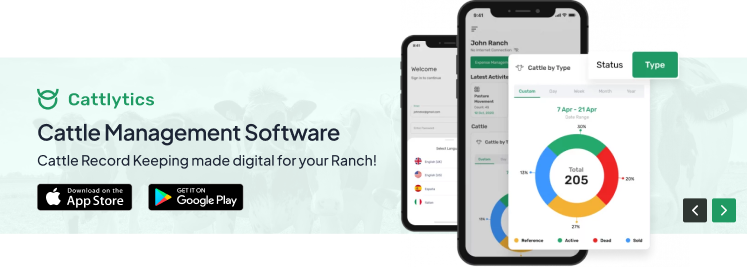In today’s complex landscape of food safety guidelines for meat sales, the unwavering adherence to USDA meat sales regulations emerges as an unspoken pact between businesses and consumers. The significance of ensuring USDA compliance for meat sellers transcends the mere exchange of products; it’s a solemn commitment to safeguarding food safety and fostering unwavering consumer trust.
In this comprehensive guide, we embark on a journey that delves deep into the very essence of USDA rules for selling meat. But this journey isn’t about bureaucratic barriers; it’s a quest to establish a foundation of integrity and reliability for the thriving meat industry. Through an intricately woven step-by-step approach, we will unravel the tapestry of tips for USDA-compliant meat sales, equipping you with the knowledge and tools necessary to navigate the complexities that define this realm.
Brace yourself for a transformational journey where regulatory challenges become stepping stones toward greatness. As you absorb these guidelines and translate them into successful food safety practices, you’re not just meeting legal obligations; you’re elevating your commitment to food safety and embracing the pinnacle of quality assurance.
Understanding USDA Meat Sales Regulations
Comprehensive Oversight by the USDA
The USDA, through its Food Safety and Inspection Service (FSIS), enforces a set of comprehensive meat industry regulations. These regulations cover every stage of the meat production process, from slaughterhouses to labelling and distribution. The primary goal is to protect consumers by ensuring that meat products are safe, wholesome, and accurately labelled.
These meat industry regulations touch upon a wide range of aspects, including facility design, equipment maintenance, employee hygiene, sanitation procedures, and record-keeping practices.
Importance of Hazard Analysis and Critical Control Points (HACCP) Plans
For instance, FSIS mandates the implementation of Hazard Analysis and Critical Control Points (HACCP) plans, which are systematic approaches to identifying and preventing potential food safety hazards in the meat production process.
Non-compliance with USDA rules for selling meat can lead to serious consequences, including fines, recalls, and even legal action. Moreover, a reputation tarnished by non-compliance can have long-lasting negative effects on consumer trust and market viability. Therefore, it is essential for meat-selling businesses to have a thorough understanding of these regulations and to ensure strict adherence.
Facility Design and Maintenance
When it comes to facility design, USDA regulations encompass various factors that contribute to maintaining a hygienic and safe environment for meat processing. This includes guidelines for the layout of processing areas, ventilation systems, lighting, and waste disposal. Equipment maintenance is another crucial aspect, as improperly maintained equipment can lead to contamination and safety hazards.
Employee hygiene is a fundamental requirement in meat processing establishments. Regulations specify the necessity of proper handwashing facilities, sanitation practices, and appropriate clothing for employees. These measures are designed to prevent the introduction of harmful microorganisms into the processing environment.
The Role of Sanitation Procedures
Sanitation procedures play a pivotal role in ensuring the safety of meat products. USDA rules for selling meat dictate rigorous cleaning and sanitizing practices to prevent cross-contamination and the growth of pathogens. Regular cleaning schedules, the use of approved sanitizers, and the prevention of pests are all integral to maintaining compliance.
Maintaining accurate records is not only a regulatory requirement but also a vital tool for ensuring traceability and accountability. Meat-selling businesses must keep records of various activities, including production, processing, labelling, and distribution. These records help in tracking the origin of products, identifying potential issues, and facilitating swift recalls if necessary.
Proactive Approach with HACCP Plans
One of the cornerstones of USDA regulations is the implementation of Hazard Analysis and Critical Control Points (HACCP) plans. These plans involve identifying potential hazards in the meat production process and establishing control measures to mitigate those risks. HACCP Compliance plans are customized for each establishment and serve as a proactive approach to preventing foodborne illnesses.
Ensure USDA Compliance for Meat Sellers: A Step-by-Step Approach
Step 1: Assessing Your Current Practices
The journey toward USDA rules for selling meat begins with a comprehensive assessment of your current practices. This self-assessment involves a deep dive into your operations, from raw material sourcing to product distribution. The goal is to identify gaps and areas that need improvement in relation to USDA rules for selling meat.
To aid in this assessment, modern technology provides valuable solutions. EcoDocs, a sophisticated food safety management system, offers an organized framework for evaluating your practices. By answering a series of targeted questions and providing specific details about your operations, you gain a clearer picture of where your business stands in terms of compliance.
Step 2: Identifying Gaps and Areas for Improvement
Once you’ve completed the self-assessment, it’s time to identify gaps in your practices that could hinder USDA compliance. These gaps might involve insufficient sanitation procedures, incomplete record-keeping, or inadequate employee training. EcoDocs plays a crucial role here by analyzing your responses and generating a comprehensive report highlighting the areas that need attention.
EcoDocs’ data-driven approach ensures that the identification of gaps is precise and actionable. This clarity enables you to prioritize improvements effectively and allocate resources where they are most needed.
Step 3: Implementing EcoDocs’ Food Safety Management System
Implementing necessary changes is the heart of achieving USDA compliance. Here, EcoDocs proves invaluable once again by offering a comprehensive food safety management system. The system guides you through the process of aligning your practices with USDA rules for selling meat.
EcoDocs features functionalities that directly correspond to key USDA regulations. These include temperature monitoring, sanitation practices, and product traceability. By following EcoDocs’ step-by-step instructions, you can ensure that your processes are in line with industry standards.
Step 4: Employee Training and Education
USDA compliance relies heavily on well-trained employees who understand the nuances of food safety and regulatory requirements. Proper training equips your staff with the knowledge and skills to handle meat products safely, reducing the risk of contamination and upholding product quality. EcoDocs takes this aspect to another level by offering customizable training modules and resources.
Through EcoDocs, you can develop training materials tailored to your business’s specific needs. These materials can cover a range of topics, from hygiene practices to proper equipment handling. By educating your employees, you create a culture of compliance that permeates every level of your operations.
Step 5: Maintaining Ongoing Compliance
Meeting USDA requirements for meat selling is not a one-time accomplishment; it requires sustained effort. Businesses must continually monitor their practices, adapt to regulatory changes, and refine their processes to ensure compliance over time. EcoDocs simplifies this ongoing task by providing real-time alerts, notifications, and reminders.
EcoDocs’ user-friendly dashboard keeps you informed about impending food safety inspections, required documentation, and critical tasks. By integrating EcoDocs into your daily operations, you create a streamlined workflow that supports consistent adherence to USDA rules for selling meat.
The Benefits of Achieving USDA Compliance
Selling meat with USDA approval offers a range of benefits to meat-selling businesses. Meeting legal standards not only ensures food safety but also enhances consumer trust and brand reputation. Aligning with rigorous food safety guidelines positions your business as a reliable source of high-quality meat products.
Moreover, selling meat with USDA approval also carries the authority of a respected regulatory body, differentiating your products and attracting health-conscious consumers. This reputation fosters customer loyalty and business growth.
In today’s digital age, brand reputation is paramount. By becoming USDA-compliant, meat sellers can establish positive brand images that attract and retain customers. EcoDocs simplifies USDA compliance management through its intuitive interface and comprehensive features.
EcoDocs serves as a central hub for compliance efforts, digitizing documentation and saving valuable time. Its data-driven insights empower proactive compliance measures, positioning your business for success in a competitive market.
Testimonials from Meat Sellers Using EcoDocs
Real-world success stories from meat sellers who have embraced EcoDocs underscore the tangible impact of this comprehensive solution. These testimonials shed light on how EcoDocs has transformed their compliance journey, enabling them to navigate complex regulations with confidence and ease.
One such success story comes from Annie’s Butcher Shop, where the owner, Annie Thompson, attests to EcoDocs’ efficacy.
“EcoDocs has been a game-changer for us. It’s like having a dedicated compliance expert on hand 24/7. With its guidance, we not only met USDA regulations but also improved our operational efficiency, all while ensuring the safety of our products.”
Conclusion
Ensuring meat safety and compliance with USDA is an ongoing endeavor that demands commitment and vigilance. By following this step-by-step approach and harnessing the power of EcoDocs, you embark on a journey of excellence. From assessing your practices to maintaining ongoing compliance, EcoDocs serves as your trusted ally, guiding you toward a future of USDA standards for meat businesses and meat selling best practices. Embrace the opportunity to elevate food safety standards, cultivate consumer trust, and drive your meat-selling business toward lasting success.
With this comprehensive guide and EcoDocs as your ally, you’re equipped to navigate the intricate landscape of USDA compliance and elevate your meat-selling business to new heights of excellence.
FAQs:
What are the essential USDA regulations that meat sellers must adhere to?
USDA regulations encompass various aspects, including sanitation, labelling, traceability, and HACCP plans. Compliance ensures consumer safety and product quality.
How can EcoDocs assist meat businesses in achieving USDA compliance?
EcoDocs offers a comprehensive food safety management system, guiding businesses through compliance steps, facilitating employee training, and providing real-time alerts.
Is EcoDocs suitable for small-scale meat-selling establishments as well?
Absolutely. EcoDocs is designed to cater to businesses of all sizes, offering tailored solutions for compliance regardless of scale.
What are the common challenges faced by meat sellers in meeting USDA standards?
Challenges include managing complex regulations, training employees, and maintaining consistent compliance. EcoDocs addresses these challenges with its comprehensive approach.
Can EcoDocs help businesses in preparing for USDA inspections?
Yes, EcoDocs aids in maintaining all necessary documentation and tasks, making the inspection process smoother and more organized.







